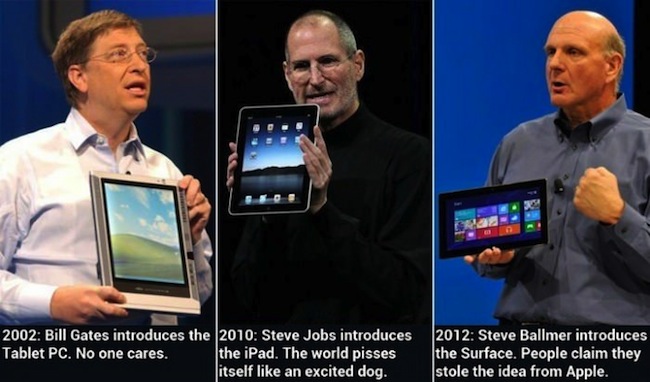China shows why Microsoft is screwed
THERE been some recent whining from Microsoft about how they get to sell bugger all in China. As opposed to Apple who can’t make things fast enough. Some of this is of course because Microsoft sells software, something often ripped off in that lovely country. But there’s something else as well: and it’s a neat illustration of why Microsoft is, essentially, screwed.
China’s Internet population surges to 564 million, 75 percent on mobile
You don’t actually need any more of the story than that, the headline.
Ten years ago, heck, five, if you wanted to get online, if you wanted to do any form of computing at all really, you had to use a PC. Sure, you could get the Apple one, you might use a thin client on the company network, but these were fractions of the market. Having “a computer” basically meant sending Redmond the £30 or whatever for Windows and as often as not, another £50 or whatever for Office. Those are the prices the PC makers paid of course, not what you or I would retail.
It was a very lovely little monopoly and one that made Bill Gates the richest man in the world for a time. And what would come along and disrupt that lovely, very profitable monopoly? Pretty much nothing really was the thought. No one’s going to produce another desktop operating system that everyone will use. There were attempts, of course, but that “everyone will use” thing was the problem.
But as we can see from those Chinese numbers, the monopoly has been broken. Windows, Microsoft, hardly registers in the mobile computing world. Yet 75% of the internet access, thus 75% of the computing, is taking place there, without Microsoft. The monopoly’s over in other words. It’s still pretty much there on desktops, sure, but not in computing any more. Microsoft’s position is becoming more like being the monopoly maker of buggy whips just as everyone starts driving cars.
Or as the economists would have it: all monopolies fail eventually. Even if compeition doesn’t kill them then changing technology will. It’s only ever a matter of how long it takes.
Posted: 25th, January 2013 | In: Money, Technology 3 Comments | TrackBack | Permalink



